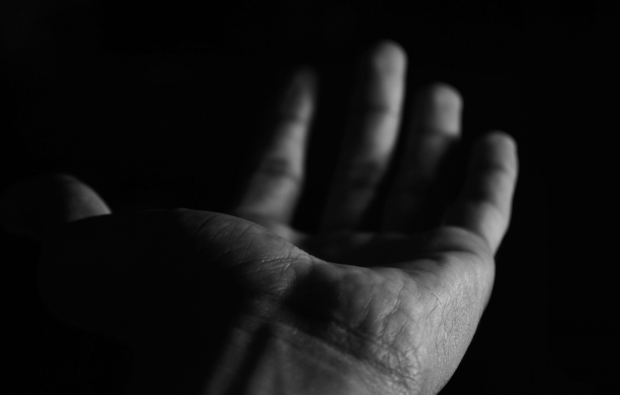the mandate of maundy thursday
It’s Maundy Thursday 2000 years ago. The known world is caught up in violent conflicts. Political leaders are abusing their power and engaging in sexual misconduct. Ethnic minorities are being oppressed. Poor people are going hungry. People are dying because they can’t afford doctors or medicine. Innocent children have been massacred.
Jesus has asked his disciples to reserve a special room so they can observe a special Passover dinner together.
The disciples have heard him talk about laying down his life, but they don’t know that Jesus will die in less than 24 hours. From their perspective, the night looks more like a celebration of Jesus’ meteoric rise to popularity rather than a solemn prelude to his death.
Jesus has spent the past three years mesmerizing people with miracles, and amazing crowds with his simple but profound teaching. He is recognized as a healer, a rabbi, a prophet, and now it seems, a thrilling political candidate.
Just a few days before, he rode into Jerusalem on a donkey, the symbol of an up-and-coming King. Throngs of people filled the streets, waving palm branches and shouting, “Hosanna! Blessed is he who comes in the name of the Lord!”
Sure, there is some opposition, but that’s to be expected. For the most part, Jesus’ supporters are enthusiastic. His fan base is electrified.
As they gather at the table on Thursday night, I’m sure the disciples expect Jesus to make a big announcement.
It’s time! Let’s take our places on the battlefield. Let’s fight injustice. Let’s rise to power. Let’s bring God’s Kingdom down to earth and reign over it.
But Jesus doesn’t do that.
 He doesn’t wow them with a miracle. He doesn’t pour water into their glasses and turn it into wine. He doesn’t multiply a morsel of bread into a dozen loaves.
He doesn’t wow them with a miracle. He doesn’t pour water into their glasses and turn it into wine. He doesn’t multiply a morsel of bread into a dozen loaves.
He doesn’t give a speech. He doesn’t even tell a parable.
He doesn’t offer them a strategy for what happens next, for how to get more power or glory or fame. He doesn’t ask them to grow a voter base.
Instead, he silently strips off his robes until he looks like a slave. And then he kneels down, and he washes their feet.
The disciples are surprised, embarrassed, appalled.
“STAND UP, JESUS! STAND UP!”
This is not the stately behavior of a king. This is not an awe-inspiring display of power. This is not the way to win a popularity contest. Or a medal. Or an election. Or a war.
But with this simple, humble gesture, on the last night of his life, Jesus takes a final and bold stand, insisting that the root of every problem in the world is not the absence of power or votes or money or weapons.
The root of every problem in the world is the absence of love, and so the infusion of love must be the beginning of every solution.
Jesus invites his disciples to follow their Master’s example. In taking this posture, they will be obeying all of his commands.
They will love their neighbors and bless their enemies. They will be peacemakers. They will be poor in spirit. They will be meek. They will stop contending for first place and gladly go last. They will be emptied of selfishness and conceit. They will be motivated by love instead of by fear.
They will change the world.

It’s Maundy Thursday, 2015.
The known world is caught up in violent conflicts. Political leaders are abusing their power and engaging in sexual misconduct. Ethnic minorities are being oppressed. Poor people are going hungry. People are dying because they can’t afford doctors or medicine. Innocent children are being massacred.
If Jesus had asked us to reserve a room to have a special dinner, we probably would’ve rented a ballroom and organized a fundraiser for his political campaign. After all, there are millions of people who follow this man who is a miracle-worker, a rabbi and a prophet.
We could mobilize voters. We could raise a lot of money. We could launch a campaign to get him elected.
Jesus for President would make a great campaign slogan. Who wouldn't support his political platform -- to take power away from people who abuse it, set immoral people straight, offer opportunities to insignificant people and give a tax break to the middle class?
And yet, on the night we expect Jesus to ascend to power and fame, we find him descending into service.
He’s not on the platform delivering an address; he’s behind the counter at the coat-check, taking peoples’ furs and feathers. And then, while everyone’s eating at the banquet, he slips into the back of the room with his shirtsleeves rolled up, holding a basin and a towel. He removes his supporters’ socks and shoes, and then he washes their feet.
“STAND UP, JESUS!” We say. “STAND UP!”
We are surprised, and embarrassed, and appalled by his behavior.
“This isn’t how you win a presidential election!” we exclaim.
And Jesus says, “I know it’s not how you win an election. But it IS how you change the world.”
And just like He did 2000 years ago, Jesus takes a final and bold stand, insisting that the root of every problem in the world is not the absence of power or votes or money or weapons.
The root of every problem in the world is the absence of love, and so the infusion of love must be the  beginning of every solution.
beginning of every solution.
Jesus invites us to follow our Master’s example, and reminds us that by taking this posture, we will be obeying all of his commands.
We will love our neighbors and bless our enemies. We will be peacemakers. We will be poor in spirit. We will be meek. We will stop contending for first place and gladly go last. We will be emptied of selfishness and conceit. We will be motivated by love instead of by fear. We will change the world.
We call today Maundy Thursday from the Latin word “mandatum,” from which we get the word “mandate.”
Today we remember that on the night before his death, the mandate that Jesus left us was not a political or economic one.
The only mandate he ever has and ever will call us to -- is love.
The love of Jesus will never win a medal or an election or a war.
But it will change the world.
